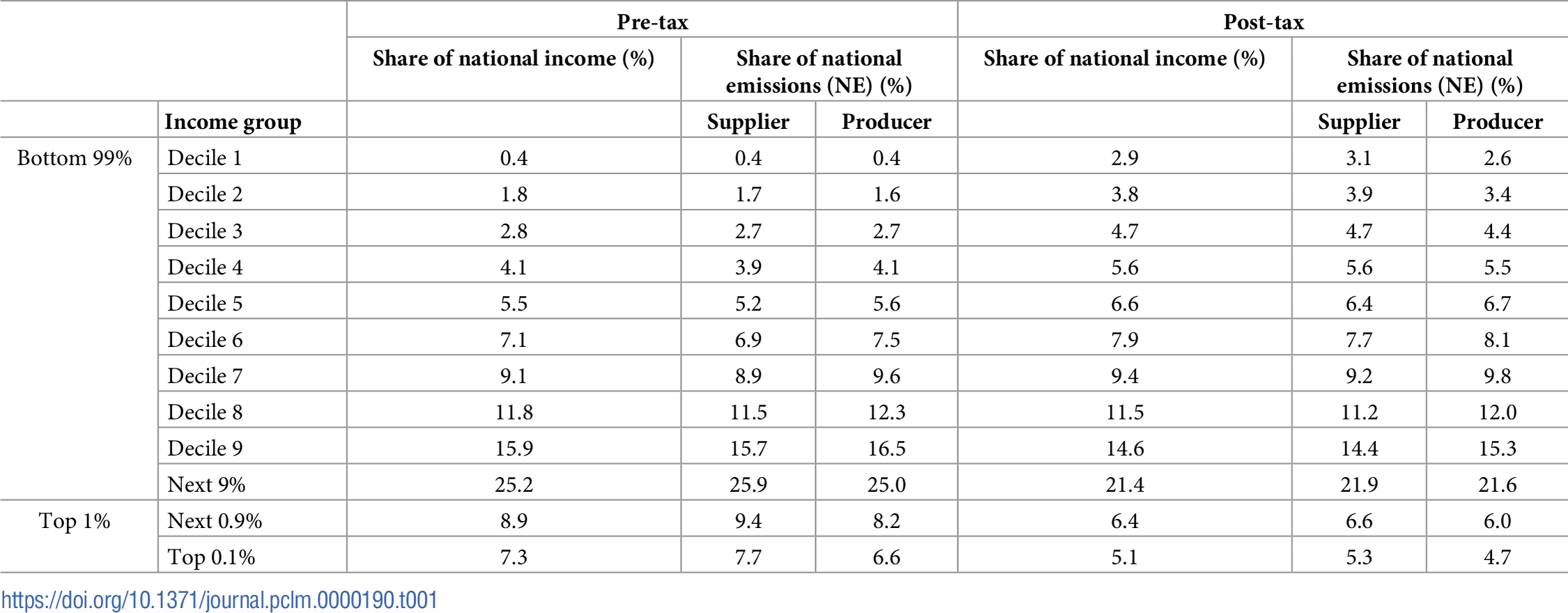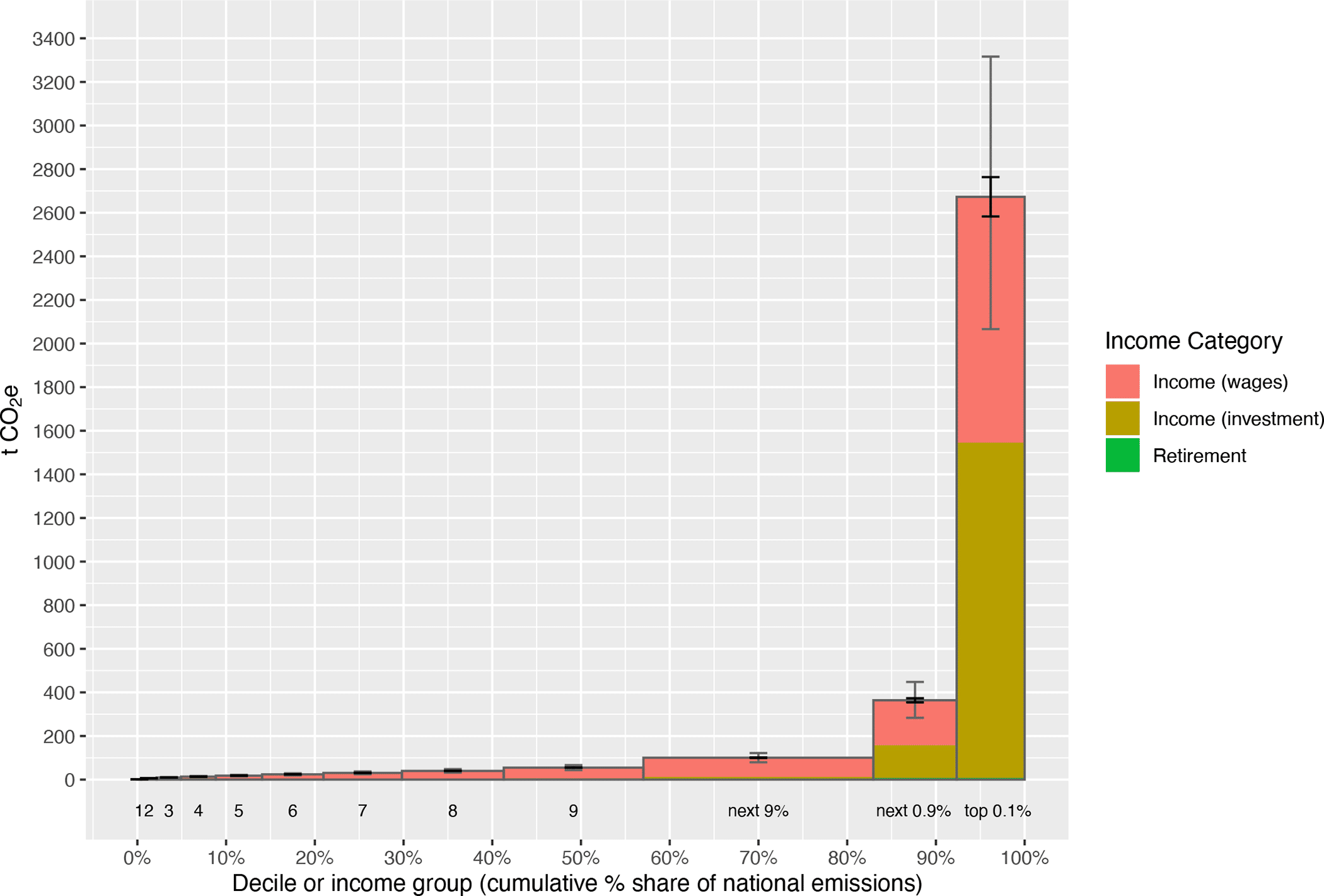A new study led by the University of Massachusetts Amherst suggests that America’s richest people, whose investment income are responsible for the considerable part of the nation’s carbon emissions, should be taxed.
The researchers found that the top 0.1% wealthiest Americans emit 3,000 tons of carbon a year, or equal to over 62x more than what a typical American household emits – 48 tons.
The authors of the study published in PLOS Climate said they aim to get the answer to this question: “What happens when we focus on how emissions create income, rather than how they enable consumption?”
They examined huge datasets covering 30 years to determine how income relates to carbon emissions. Their results call on US lawmakers to reconsider the current carbon taxation to address climate change.
Richest Americans’ Share of The Nation’s Carbon Emissions
The study’s model provided a carbon footprint for every dollar of economic activity in the U.S. The researchers did that by looking at inter-sectoral financial transfers and their associated flow of income and carbon emissions. They then came up with 2 different values for income’s carbon emissions – supplier and producer.
The supplier value refers to emissions from industries/companies that supply fossil fuels while the producer value refers to carbon emitted directly from business operations themselves.
The researchers then linked that information to households using data showing industries where people work and their earnings. They analyze data income from two different sources: active income from employment (wage/salary) and passive income from investments.
As such, their study is the first to link income from financial investments to carbon emitted in generating that earning. Here are the major insights they found out.
The Key Facts:
For 90% of Americans, wages give them the money they need to live and buy things they want. These people are in the lower and middle income households whose carbon emissions are mostly linked with their salaries.
But for the wealthiest 10% (Top 1%+Next 9% income group), they’re getting most of their income passively from investments. And the researchers found that over 40% of the country’s national emissions were from the income of those 10%. These wealthy people earn more than $178,000 annually.

Most notably, their results also included the top 0.1% or the “super-emitters” as what the authors call them. These extremely wealthy Americans get most of their income from investing in finance, insurance, and mining industries, the report said. Their investment income drives >50% of emissions.

The authors also shared this insight:
- 15 days of income of the rich in the top 0.1% pollute as much carbon as a lifetime of income for those in the bottom 10%.
The study further suggests that income size isn’t the only contributor to climate but also the industries that create it.
For instance, a household that earns $980,000 from fossil fuel industries is a super-emitter. However, a household sourcing income from the hospital industry has to earn $11 million to generate the same amount of carbon.
With these facts, the lead author, Jared Starr, noted how relevant their findings are for policymakers, saying that:
“This research gives us insight into the way that income and investments obscure emissions responsibility… An income-based lens helps us focus on exactly who is profiting the most from climate-changing carbon pollution, and design policies to shift their behavior.”
Tax The Rich People’s Income Instead of Consumption
The researchers recommend that governments must rethink how they use carbon taxes. Rather than taxing things that people buy, (consumption-based approach), policymakers should focus instead on making shareholders responsible for the carbon emissions of their investment incomes.
The authors believe that a shareholder-based taxation can help countries achieve the goal of keeping global temperature levels to 1.5C.
According to Starr, consumption-based taxation misses something crucial about limiting carbon emissions and noted that it is rather “regressive”. It means the carbon tax punishes the poor and has little impact on the wealthiest people whose large amount of income is saved or reinvested into stocks. That portion of income is, therefore, not subject to a carbon tax.
Take for instance the case of the top 1% of household earners who’s responsible for 15-17% of national emissions. That carbon pollution is about 2.5x higher than their consumer-related emissions (6%), as per the report.
The trend is exactly the opposite for the bottom 50% of American earners whose share of national emissions is 31%. That’s 2x more than their income-based carbon emissions (14%).
The further the income distribution goes up, from the top 10% to top 0.1%, the more carbon emissions are generated from investments, instead of salaries the households earn.
Thus, carbon taxes focusing on shareholder income linked to carbon emissions seem to be more reasonable, the authors suggest. This can help incentivize the rich people who significantly profit from their carbon-intensive investments such as oil and gas to decarbonize their industries. The government can then use the revenues earned from their taxes to invest in decarbonization initiatives.

